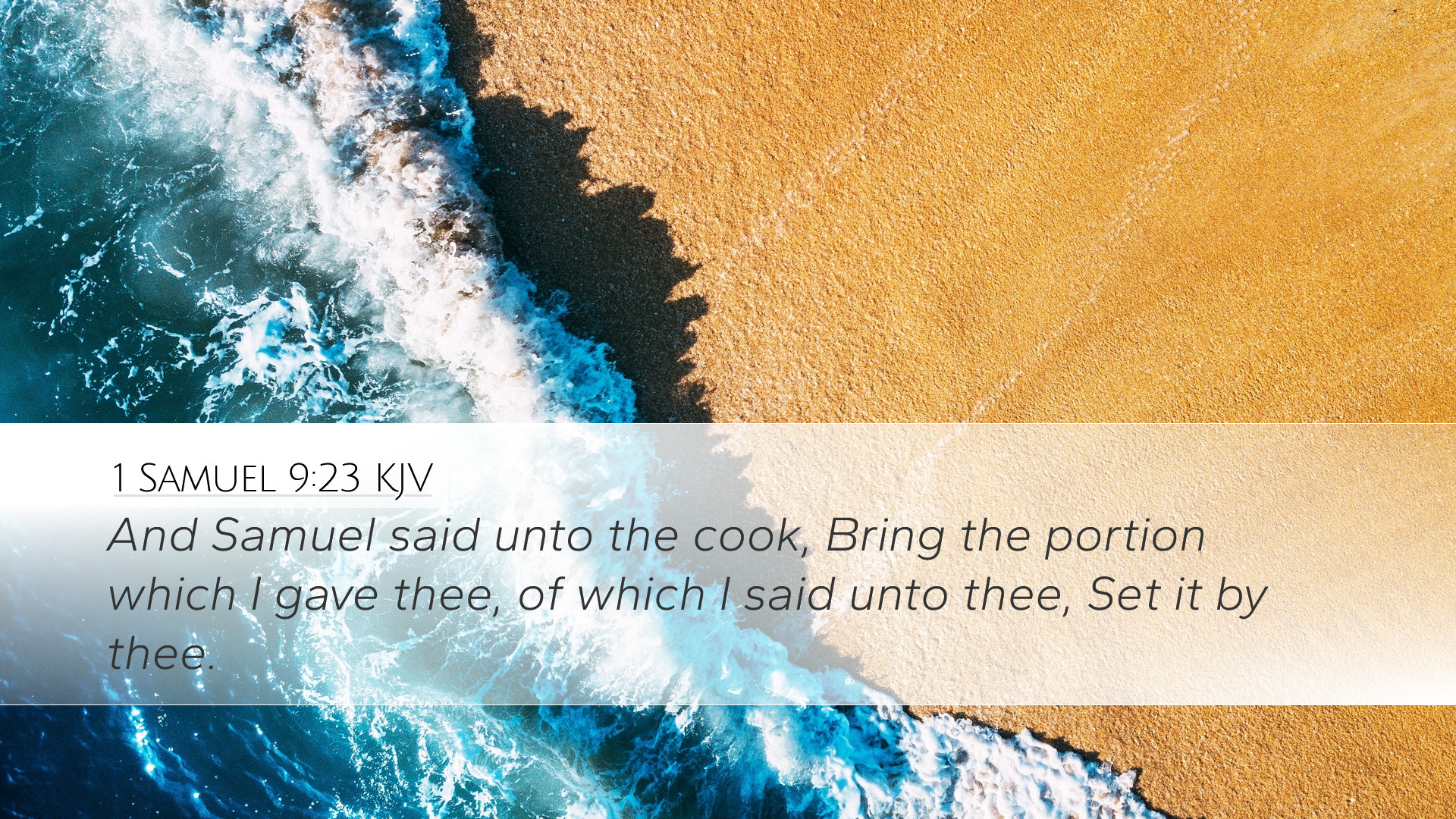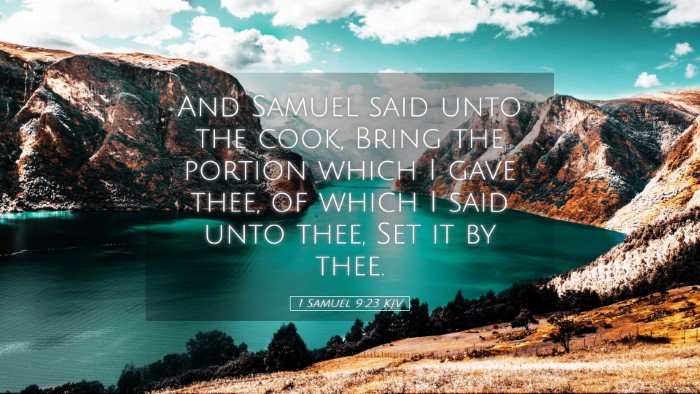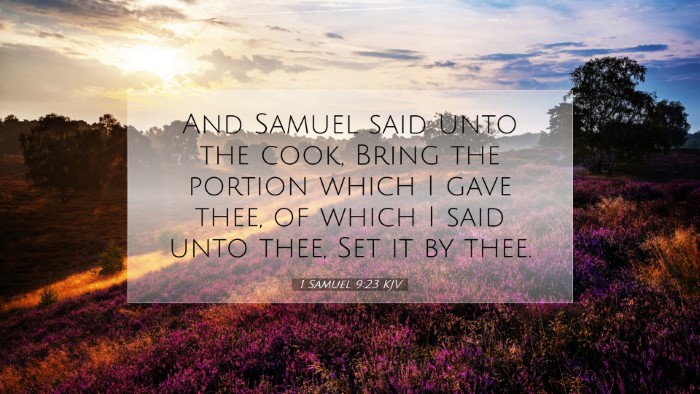Commentary on 1 Samuel 9:23
1 Samuel 9:23 reads: "And Samuel said unto the cook, Bring the portion which I gave thee, of which I said unto thee, Set it by thee."
Contextual Background
The context of this verse is critical to understanding its implications. This passage occurs during a pivotal moment in Israel’s history when the nation was transitioning from a period of judges to a monarchy. Following the cries of the people for a king, God instructs Samuel to anoint Saul. This verse is part of the narrative that illustrates Samuel’s role in the process, highlighting the significance of Samuel’s prophetic authority and his relationship with God.
Commentary Insights
-
Matthew Henry's Commentary:
Henry emphasizes that Samuel's request to the cook for the portion set aside indicates a special honor for Saul. The act symbolizes the sanctity of God's choice in leadership and the preparation of the divine appointment. By setting aside the portion, Samuel recognizes Saul’s impending elevation and the responsibilities that accompany it.
-
Albert Barnes' Notes:
Barnes highlights that Saul is introduced into the narrative through the act of eating, which in the Hebrew culture often connotes fellowship and acceptance. By asking for the portion, Samuel symbolizes the divine acknowledgment and acceptance of Saul as the future king. Barnes notes that this is not merely a meal but a prophetic function indicating serious implications for Saul’s future leadership.
-
Adam Clarke's Commentary:
Clarke explores the cultural significance of the meal and the custom of setting apart food during sacred events. He draws attention to the fact that the portion not only carries physical nourishment but also spiritual implications as Saul prepares for the role of king. Clarke further discusses how this action by Samuel acts as a precursor to the anointing, reinforcing God's sovereignty in choosing the leader of His people.
Theological Implications
1 Samuel 9:23 serves as a profound reminder of God's providential orchestration in the affairs of humanity. The careful preparation of Saul as the future king is pivotal in understanding God's interaction with Israel. This verse conveys several theological themes:
-
Divine Selection:
The act of setting aside food symbolizes God’s selective process in appointing leaders. God’s omniscience is evident, demonstrating that He equips and prepares those He has chosen for specific tasks.
-
The Importance of the Prophet:
Samuel acts as a mediator between God and the people, illustrating the role of prophets in establishing leadership. This reinforces the idea of divine authority bestowed through a prophet, a concept that resonates throughout scripture.
-
The Transition of Leadership:
This verse marks a significant transition from judgeship to monarchy in Israel, showcasing the tension between divine kingship and human leadership. It raises questions about reliance on God versus human authority, an issue that remains relevant in theological discussions today.
Practical Applications
For pastors, students, and theologians, the insights drawn from 1 Samuel 9:23 can provoke reflection on several practical applications:
-
Preparation for Leadership:
Understanding the preparation process for divine assignments is vital for anyone in leadership roles. Just as Saul was honored and prepared by the prophet, modern leaders must seek God’s guidance and preparation for their roles.
-
The Role of Prophets and Mentors:
Samuels’ actions invite reflection on the importance of mentorship in spiritual development. Leaders should cultivate relationships that foster growth, accountability, and spiritual vigor within their communities.
-
Understanding Divine Sovereignty:
Seeing God’s hand in the affairs of leadership reminds believers of His ultimate authority. This encourages faith and reliance on God’s plans, even when human choices appear contrary.
Conclusion
1 Samuel 9:23 is a rich verse that encapsulates significant theological and practical elements for ministry and leadership today. It not only recounts a moment in Israel's history but serves as a call to recognize the hand of God in preparing and appointing leaders. Engaging with this passage through the lenses of esteemed commentaries provides a deeper appreciation and understanding of the complexities and implications it carries for both ancient and modern believers.


